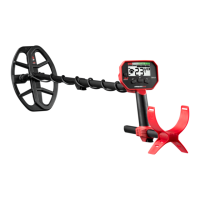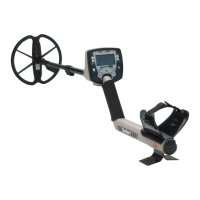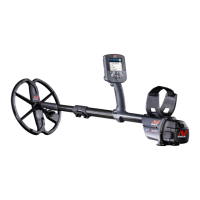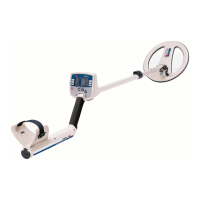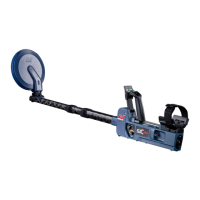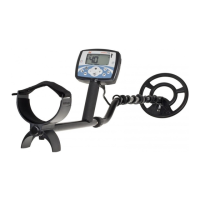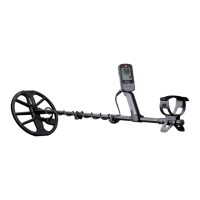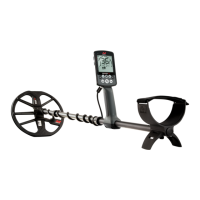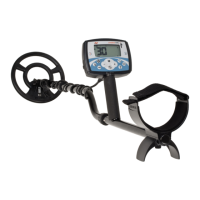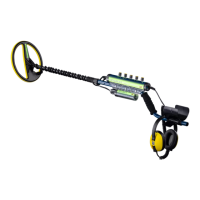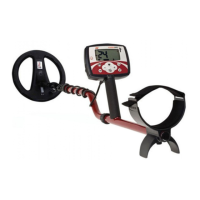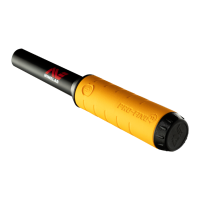16
CONTENTS
Detector Care and Safety
Wash your hands before handling the detector after
applying sunscreen or insect repellents�
Do not use solvents to clean� Use a damp cloth with a mild
soap detergent�
Never allow the detector to come into contact with
gasoline/petrol or other petroleum‑based liquids�
Avoid getting sand and grit in the shafts and fastenings
(e�g� coil yoke assembly and camlocks)� If sand and grit
accumulates in these parts they should be wiped clean
with a damp cloth�
Do not bring the detector or accessories into contact with
sharp objects as this may cause scratches and damage�
If the shafts become noticeably scratched, wipe them
thoroughly with a damp cloth�
Do not leave the detector in excessive cold or heat longer
than necessary� Covering it when not in use will help
protect it� Avoid leaving it in a hot vehicle�
Ensure the coil cable is in good condition and not subject
to undue stress�
Take precautions when transporting or storing the
detector� Although the detector is constructed from the
highest quality materials and has undergone rigorous
durability tests, the display screen could be prone to
scratching or serious damage if not treated with due care�
Do not expose the detector to extreme temperature
conditions� The storage temperature range is from ‑20°C
to +70°C (‑4°F to +122°F)�
Do not expose accessories not listed as waterproof to
liquid/moisture or excessive humidity�
Do not allow children to play with the detector or
accessories, small parts are a choking hazard�
Only charge rechargeable batteries and accessories
according to the instructions provided�
Avoid charging rechargeable batteries and accessories in
extreme temperature conditions�
Remove batteries prior to air transportation�
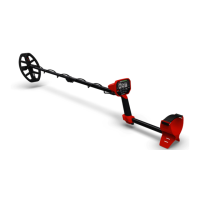
